Smoke haze has long-term health impacts, experts warn
Breathing in Sydney’s smoke-riddled air for weeks or months can have serious long-term health impacts, increasing your risk of lung cancer, asthma and a raft of other illnesses, experts warn.
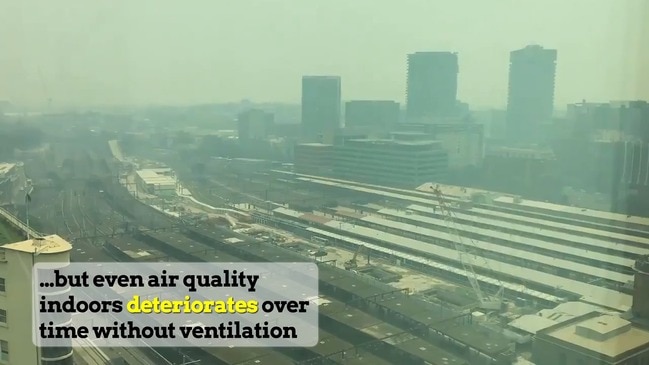
NSW
Don't miss out on the headlines from NSW. Followed categories will be added to My News.
Health experts have sounded the alarm on the long-term health impacts of the acrid smoke choking Sydney, warning it could place healthy people at risk of cancer and stunt young babies’ growth.
The warnings comes as a westerly buster is set to push smoke from the fires across the state’s eastern seaboard from Thursday.
Last Tuesday, the state’s air quality hit historic lows, setting a record as the worst day for visibility ever recorded, worse than the 2009 red dust storm.
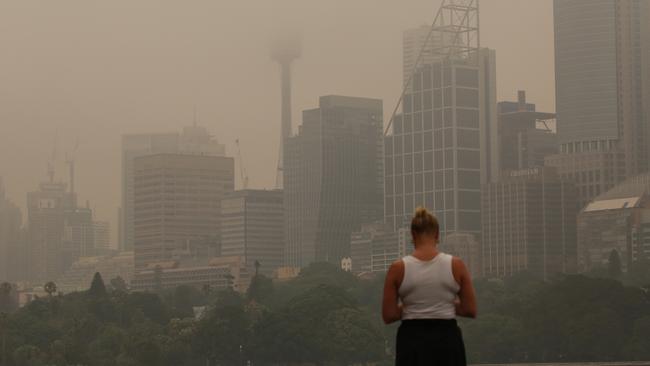
Since the start of September, Sydney has had 28 days of hazardous air quality and a marked increase in hospital presentations. Last week paramedics fielded more than 1350 calls related to respiratory problems and 556 people turned up at hospitals.
Breathing in the tiny hair-follicle size particles dragged in by the bushfires for just a few hours or days can trigger known health impacts such as coughing, wheezing and even heart attacks.
But it turns out there are longer-term impacts of exposure that can occur after weeks or months of breathing in very high or hazardous levels of smoky air like that seen in Sydney.

Dr Kim Loo, a GP in Sydney’s northwest says she has had a substantial increase in once healthy patients being diagnosed with asthma since the smoke haze started.
“People don’t see the potential harm that they could be breathing in [but] exposure causes a cascade of inflammatory responses,” citing research finding a link between exposure to smoke and renal problems, respiratory illness, pneumonia, skin infections, Type 2 diabetes and even cancer.
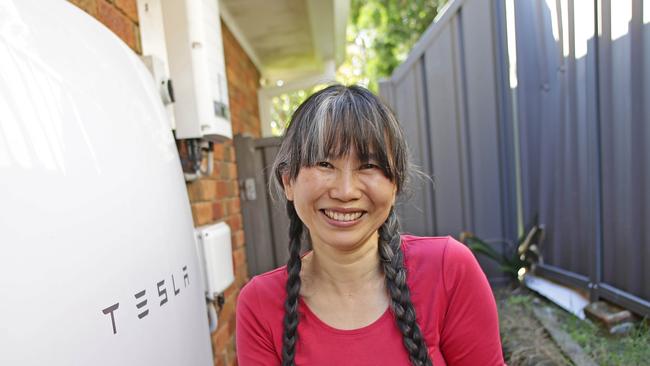
Prolonged exposure to the dangerous PM2.5 particles drifting in the air is also known to lower the birth weight of babies and reduce their lung capacity, according to Dr Loo.
Professor Sotiris Vardoulakis, a leading respiratory health expert at Australian National University also warned that exposure like that experienced in Sydney over the past weeks can cause a raft of health problems for completely healthy individuals including cancer and asthma, particularly for those with a family history.
Exposure to smoky air can be particularly dangerous for vulnerable groups like young babies, pregnant women, the elderly and those with Type 2 diabetes, existing respiratory or heart illness, according to Prof Vardoulakis.
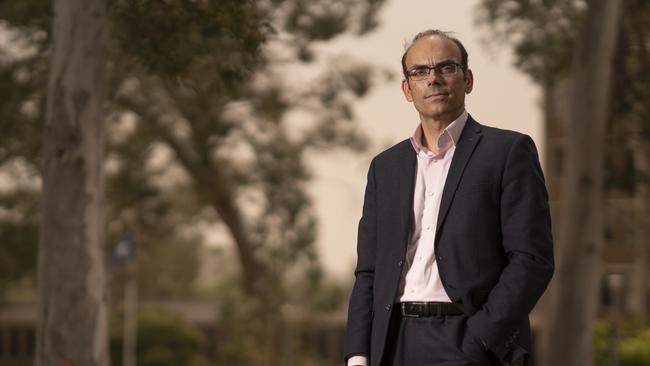
Research suggests that when vulnerable groups breathe in smoky air there is an increased risk of health problems like lung infections such as bronchitis or lower birth weight for newborn babies and reduced lung capacity for children aged one to two, he said.
“The big concern is young children and pregnant women because there is some evidence exposure during pregnancy or very early life can cause effects on respiratory system that can last for a number of years,” he said.
Health impacts increase with the period of exposure, Prof Vardoulakis says, so the longer someone is exposed to the air, the higher the risk of health problems in the future.
“When it’s very polluted it’s better not to be outside. Exposure is a cumulative thing, the more exposed you are the more increased risk of adverse health outcomes.”
People should closely monitor air quality on the Environment NSW website, he says, and stay inside when levels of smoke are high given the chronic impacts of exposure.
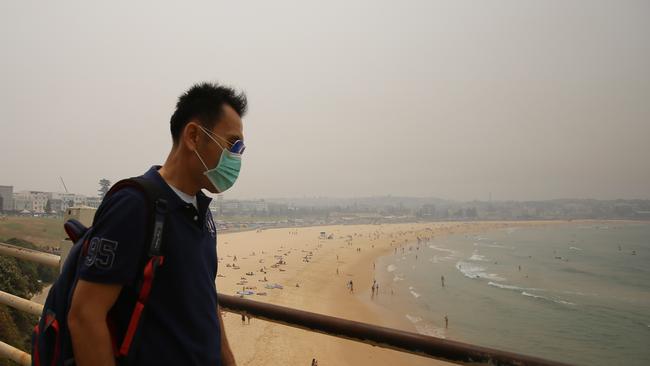
Outdoor workers or those who can’t avoid exposure should wear P2 masks or where possible try to work from home when air quality is poor, he said.
Everyone else should stay inside in recirculated airconditioning and use air purifiers, avoid outdoor exercise and use properly fitted P2 masks when they are outdoors, according to Prof Vartoulakis.
CEO of Asthma Australia Michelle Goldman said the systemic impacts on the heart, lungs and other organs “makes sense” given PM2.5 particles are absorbed into the bloodstream. Everyone should be looking at levels of smoke and responding accordingly, she says.
“Real time monitoring of PM2.5 is something that is feasible and something we need to do as a community.”
The warnings comes as parts of Sydney are set for sweltering heat, with the mercury set to hit 46 in Sydney’s west on Saturday.
The cumulative health impacts of the record-breaking heat and smoke haze require serious action from the government, Dr Loo and Professor Vartoulakis argue.
The news comes after a league of doctors and health experts joined to urge the government to do more to address the underlying causes and impacts of exposure to smoke.
